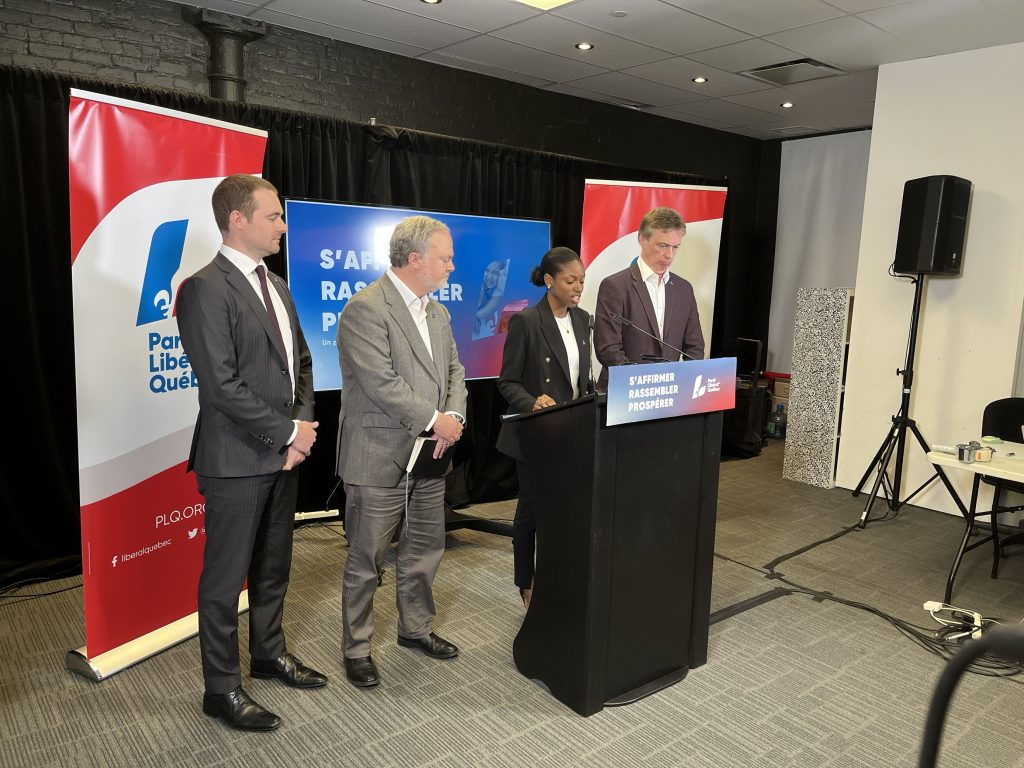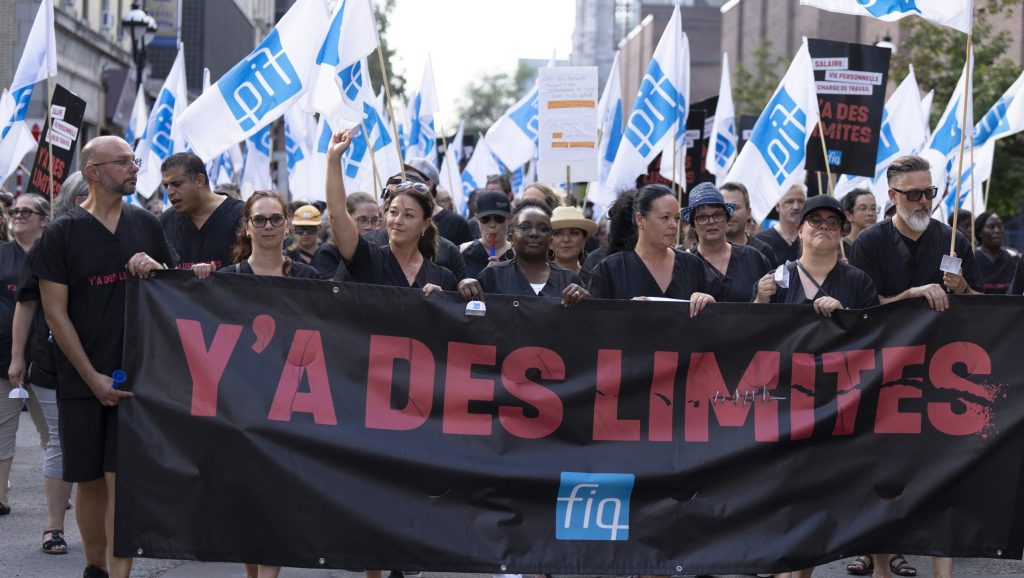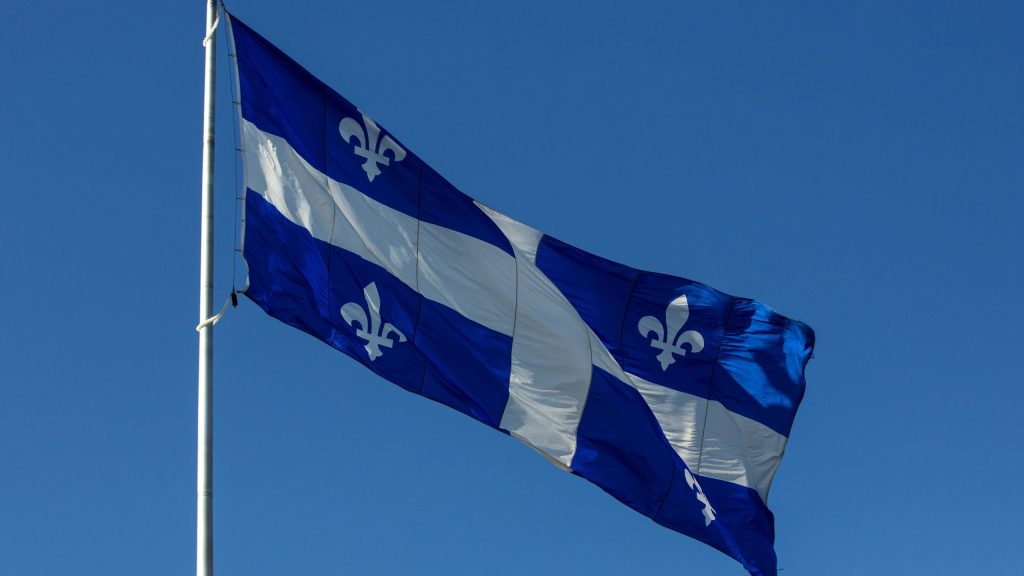Quebec Liberals: focusing on English-speakers’ rights as they rebuild the party
Posted October 12, 2023 2:37 pm.
Last Updated October 12, 2023 11:05 pm.
MONTREAL – The Quebec Liberal Party (PLQ) has given itself a political compass that sends it in the same direction as it has historically followed and they are looking to enshrine the rights of English-speakers in a new Quebec constitution.
On Thursday, the party released a recovery report resulting from the consultations of the Comité de consultation sur la relance de la formation politique, an 80-page document that has all the hallmarks of an electoral platform, although its authors deny it is working on rebuilding their image and party after devastating results in the last provincial election.
“The people that we met all over Quebec, whose language is English, have told us that their concern, that their existing rights will not be respected, that they will not be able to have services in English, in hospitals and in schools, and that they will lose control over their institutions that they hold very dear,” said Committee co-chair Madwa-Nika Cadet. “So, what we’re saying here is not in 10 years, but we hope that a Liberal government would put into law those existing rights of English-speaking Quebecers, to reassure them that those rights will not be affected over time, that their rights will be respected all the time.”

For political analyst, Eleni Bakopanos, this proposition came as a surprise.
“There is already the Charter of Rights and Freedoms of Quebec and the Canadian Charter of Rights and Freedoms that actually guarantees minority rights in Quebec,” she said. “Of course, the CAQ has overridden that by using the notwithstanding clause to pass certain pieces of legislation, including Bill 96.”
The report, entitled “asserting ourselves, uniting, prospering”, reaffirms the Liberal Party’s “federalist-nationalist” position and proposes a series of avenues to follow under these three main themes.
The “assert” theme suggests, for example, the adoption of a Quebec Constitution, yet another proposal to reform the voting system. Cadet invoked an “asymmetrical and assertive federalism”.
It includes 41 proposals, which also address plans for the environment and the economy. Since March, a committee made up of 14 members has heard from over 500 individuals from all over the province, seeking insights and consulting with experts, all with the goal of reconstructing the provincial liberal party, that’s still without an official leader after Dominique Anglade stepped down last fall.
“They still haven’t been able to attract a leader that can bring all this together and be the spokesperson for the Liberal Party and I think they have a long way to go,” said Bakopanos.
“It’s not about finding a leader,” Cadet said. “What this document is about is making sure that us as a party, that we do our homework. In the last two elections, the Quebecers, they told us the Liberal party, go and do your homework, we’re not ready. Like what we say with this is that, well, we have an 80 pages long document that tells to the population, that tells our members first, but then to the population exactly who we are, so that there’s no confusion on who has an identity.”
In the Committee’s view, “bringing people together” would require the adoption of a law on interculturalism, an approach aimed at integrating minorities into the majority host society, and strengthening the French language in education and the workplace. As for immigration thresholds, the party postponed the issue, leaving it in the hands of a future committee tasked with assessing Quebec’s capacity to welcome and integrate newcomers.

However, it is the “prosper” section that is the most elaborate. First, the idea of wealth redistribution is broached, with reference to an Inflation Protection and Housing Affordability Act. The Liberals also return with the idea of a “minimum activity income”, i.e. a form of “negative income tax” whereby a person with an income below a predetermined threshold would receive a sum to compensate. As the name suggests, however, this money would only be available to people with “productive activity”, i.e. being in employment, training or study, or a job, or engaging in “approved civic activity”, such as volunteering.
This theme also includes a sub-section on the environment, which includes the addition of the right to a healthy environment to the Charter of Rights and Freedoms, and placing the climate change file in the hands of the Prime Minister. It also proposes measures to support regional development.
The report also includes harsh criticisms of the way the PLQ has behaved in recent years, up to and including the disastrous result of the last general election. The report takes note of these criticisms, but makes no formal proposals to rectify the situation.
“What the members told us throughout the consultations is yes, we want to be proud to be Quebecers, we want to be proud to be Canadians, and we are here to defend the interests of Quebec first,” said Cadet.
“Today’s announcement, will it help them in the French in terms of attracting more French votes or more English votes?” asks Bakopanos. “Only time will tell.”
This report by The Canadian Press was first published in French on Oct. 12, 2023.



